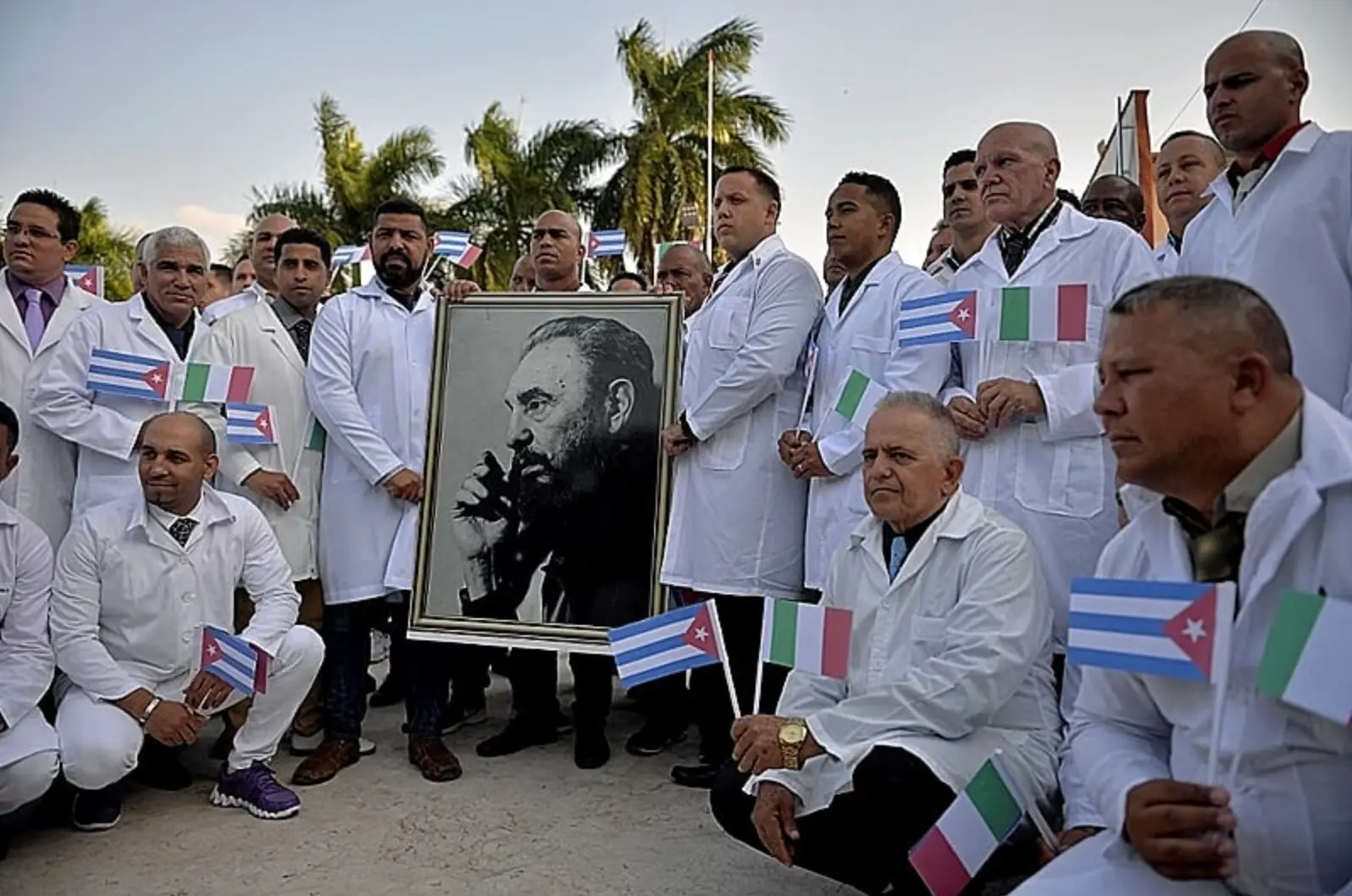From a historical perspective, Cuba has utilized the exportation of its revolutionary model as a tool for international legitimization. In the decades following the 1953 triumph, the Cuban regime supported and inspired guerrilla movements such as the Sandinista National Liberation Front (FSLN) in Nicaragua, the Revolutionary Left Movement in Chile, and the Farabundo Martí National Liberation Front (FMLN) in El Salvador. However, in recent decades, Cuba has updated its strategies to play a significant role as a catalyst for “progressive” platforms across the region.
Cuban government officials actively participate in political coordination platforms like the São Paulo Forum, strengthening alliances with ideologically aligned countries. These actions position Cuba as a leader within Latin America’s left. However, this historical legacy has evolved, continuing to influence the continent through strategies like the sharp power. This approach relies not on coercion or force but on the ability to attract and persuade other nations through propaganda, disinformation, and cultural manipulation.
Cuban influence manifests in two primary areas: cultural diplomacy and academic intervention. In the cultural domain, the Cuban regime leverages international events such as literary fairs, artistic festivals, and cinematic collaborations to promote a favorable narrative. These platforms highlight Cuba’s cultural and scientific achievements while systematically concealing human rights violations, restrictions on freedom of expression, and the regime’s structural deficiencies. For instance, Cuba’s participation in literary events in Mexico and Argentina has helped legitimize its political system.
In academia, Cuba uses international agreements, scholarship programs, and educational cooperation as tools to spread its socialist ideology. Cuban universities, under state control, promote a one-dimensional view of political and social realities, suppress critical thinking, and exacerbate ideological polarization. This model not only impacts foreign students who benefit from these opportunities but also perpetuates political divisions in their home countries by portraying the Cuban regime as an unattainable ideal compared to the flawed liberal democracies in the region.
Cuba has further extended its influence through the deployment of professionals in strategic sectors, particularly health and education. The export of Cuban doctors and educators, framed as acts of solidarity, primarily seeks to cement political relationships with recipient countries and promote a narrative that glorifies the Cuban regime. In Venezuela, this strategy is evident in the Barrio Adentro Mission, where Cuban doctors not only provide services but also serve as instruments of political indoctrination within communities.
In Nicaragua, Cuban-inspired propaganda practices and restrictions on freedoms of expression, association, and assembly have created an environment where NGOs and social movements struggle to operate. Critical social actors face surveillance, censorship, and, in many cases, reprisals such as arbitrary arrests and smear campaigns.
The political benefits for the Cuban regime are clear. Internationally, these strategies ensure legitimacy by positioning Cuba as a symbol of resistance against the U.S. economic blockade. This carefully crafted narrative reinforces its official discourse both abroad and within the island. An illustrative example is the international response organized by pro-regime groups. The Colombian Movement of Solidarity with Cuba and the Association of Cuban Residents in Colombia sought assistance during Cuba’s energy crisis, blamed on U.S. economic sanctions, while condemning the blockade and Cuba’s inclusion on the list of state sponsors of terrorism.
Similarly, in Argentina on October 27, a solidarity event was held to denounce the U.S. blockade. This event, promoted by Cuban residents in Argentina and publicized by Cuba’s consulate in the country, exemplifies the regime’s strategic use of international support networks.
The consequences of Cuba’s influence in Latin America are profound and detrimental. The Cuban regime has contributed to the erosion of democratic values, particularly in contexts where allied regimes have replicated its repressive model. Additionally, it has intensified ideological polarization, complicating the building of consensus around universal principles such as human rights and the rule of law. Cuban influence has weakened civil society and systematically restricted fundamental freedoms.
Cuba’s impact on Latin America extends beyond its historical role as a revolutionary catalyst. Its ability to adapt through modern tools like sharp power represents a significant challenge to the consolidation of liberal democracies in the region. Cuban sharp power has also utilized intellectual networks to propagate an idealized vision of its political system while downplaying criticism of its repressive policies.
This phenomenon is particularly problematic in contexts where academia should serve as a space for pluralistic and critical debate. Censorship of research in Cuba that challenges the official narrative has stifled the production of autonomous knowledge, adversely affecting the quality and diversity of Cuban academic thought.
It is crucial for Latin American democracies to strengthen their institutions and promote alternative narratives that uphold human rights and individual freedoms as inalienable foundations of democratic coexistence. Only by doing so can they counter the projection of authoritarian models like Cuba’s and ensure the development of truly free, open, and equitable societies.
*Machine translation proofread by Ricardo Aceves.













